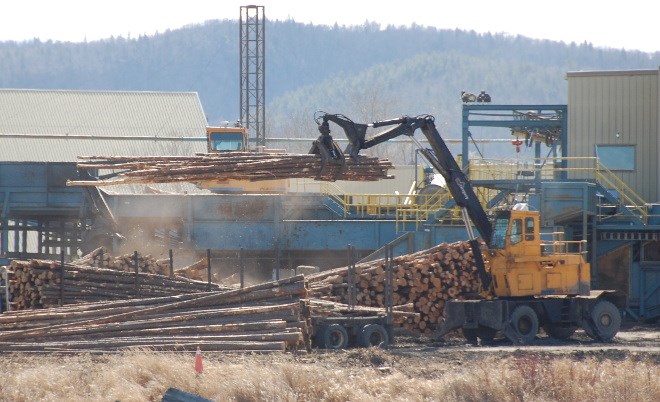Canada’s competitiveness in the world was a familiar refrain coming from industry and business groups commenting on the Feb. 28 federal budget.
The Canadian Chamber of Commerce said the 2018 budget doesn’t address basic fundamental issues facing the economy.
“Canadian business asked the government to focus on fundamentals like the growing competitiveness gap, the need to attract more private sector investment and presenting a realistic plan to balance the government’s books,” said chamber president Perrin Beatty in a news release
“The cost of running a business in Canada is rising rapidly. Without a strong private sector, there’s no way to pay for all this spending, except by sending the bill to our kids.”
Among the chamber’s recommendations to government had been to overhaul an antiquated tax system that discourages investment.
“The United States is undertaking the most massive tax and regulatory update in generations,” said Beatty.
“Meanwhile, Canadian governments are moving in the opposite direction by increasing costs and adding to the regulatory burden. We urgently need federal leadership to close that competitiveness gap to prevent the loss of billions of dollars of investment from Canada.”
The chamber wasn’t keen on the lack of a plan to balance the budget.
“By adding a further $18.1 billion to the national debt in 2018, the government appears to believe that we can spend our way to prosperity,” said Beatty.
“If Ottawa continues to run up the debt when times are good, we can only speculate on what our national finances will look like next time there is a downturn.”
Opinions were mixed from the resource sector.
Mining Association of Canada (MAC) president Pierre Gratton said with the global mining industry on the rebound, competition for mining investment capital for exploration “has never been more intense.”
“Unfortunately, Budget 2018 does little to enhance Canada’s competitiveness at a time when the country’s relative share of exploration spending and new mine investment has been declining, and as our major trading partner, the United States, has significantly reduced corporate and personal income taxes.”
On the flip side, MAC welcomed policy measures directed toward workplace diversity such as more funding and better programming for Indigenous skills and employment training, and the establishment of a grant program to encourage more women to get into the trades.
MAC gave a thumbs up for the one-year renewal of the Mineral Exploration Tax Credit.
Forest Products Association of Canada (FPAC) likes the government devoting more than $2 billion for skills training, $3 billion on environmental initiatives to create a low-carbon economy, and a commitment to protect and expand markets.
“Budget 2018 sends some positive signals that support the forest sector’s priorities, with investments to build capacity to address climate change, skills training to build a workforce for the future, and supports the further diversification of our export markets,” said FPAC CEO Derek Nighbor.
“The forest sector looks forward to working with the Trudeau government in support of their training and skills development agenda for Indigenous Peoples and women so we can secure the skilled workforce we need for tomorrow.”
But FPAC emphasized the need for a competitive tax regime, a predictable regulatory framework, a reliable energy supply, and better transportation networks to move products to market.
“We encourage the federal government to continue to support evidence-based decision making, sound science, and local and traditional knowledge that informs and considers the benefits and impact of conservation decisions,” added Nighbor.
Canadian Manufacturers & Exporters (CME) approved of budget items supporting innovation, exports, and skills development.
But the industry group said Ottawa missed an opportunity to stop the erosion of Canadian competitiveness and encourage investment.
"Measures such as increased funding for the Natural Research Council, the Trade Commissioners Service, the Women Entrepreneurship Strategy, regulatory simplification, deferred prosecution agreements, and for supporting getting more women in trades will be major supports for manufacturers in Canada moving forward,” said CME president Dennis Darby.
In the U.S., manufacturers invest, on average, eight times more than an equivalent Canadian company in facilities, machinery and equipment.
Since the pre-recession period, new greenfield foreign direct investment into Canadian manufacturing has shrunk by 40 per cent, but has grown by 41 per cent across the border.
From 2002 to 2014, labour productivity in manufacturing in Canada increased by 18 per cent, compared to 49 per cent in the U.S. increased.
"Canada is not attracting enough investment,” said Darby.
“As a result, innovation, growth and productivity are suffering. CME and our partners in Canadian Manufacturing Coalition suggested a range of reasonable tax reforms, such as enhancing accelerated capital cost allowance that would go a long way to balance Canada and U.S. corporate tax treatment and investments."
For All Aboard Ontario, a passenger rail advocacy network with a chapter in North Bay, they saw nothing but “unsubstantiated promises and $5 million more for studies while VIA Rail Canada continues to disintegrate.”
Eric Boutilier, the founder of All Aboard Northern Ontario, said: “It’s doubtful there is a less reliable rail service in the industrialized world than the Canadian, which used to be one of the world’s finest trains. It has been as much as 48 hours recently late and it hasn’t been on time once since before Christmas. Imagine what that does to the travel plans of isolated travellers, who often have no other public transportation options? So much for the inclusivity and fairness this government constantly claims as its guiding principle. This sends a bad message to Northern Ontarians, who are being made to feel they just don’t count.”
Nishnawbe Aski Nation (NAN) Grand Chief Alvin Fiddler said Ottawa “has taken a meaningful step towards reconciliation” by promoting equal access to training and jobs for Indigenous women, and health-care spending toward a new hospital serving the Mushkegowuk communities on the James Bay coast. But Fiddler noticed there is no major spending to improve First Nation housing.




